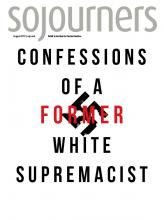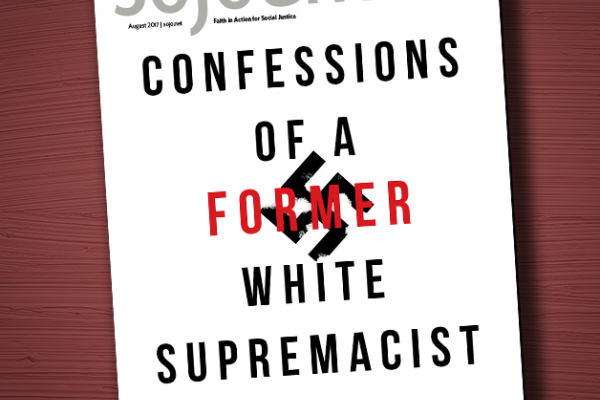LOVING THY NEIGHBOR may be one of the greatest commandments, but loving thy enemies is surely the hardest. In the past few months, we’ve seen an outpouring of the former: crowds rallying at airports to welcome refugees; churches, cities, and campuses establishing sanctuary for undocumented immigrants; courageous bystanders intervening to protect strangers from harassment and violence.
But when it comes to loving the very people who have caused real harm to us and our neighbors—for example, peddlers of fake news, white nationalists, and members of certain presidential administrations—the crowd grows thin. And understandably so: Why should we extend love to those who perpetuate a politics of hate? What would loving those people even look like?
Former white nationalist Tony McAleer has an answer. As co-founder of Life After Hate, a nonprofit that helps people leave extremist groups, McAleer has seen how small gestures of compassion can transform those consumed by hate. So when McAleer met a young veteran inching toward anti-Islam extremism, he took him to meet a local imam. “It’s incredibly powerful to receive compassion from someone you’ve dehumanized,” McAleer tells Jason Byassee in our cover story.
Of course, loving your enemies does not mean condoning their actions. Neither does it mean a disregard for the safety or well-being of those who an enemy may harm, including ourselves. Yet even with these caveats, it’s impossible to domesticate Jesus’ commandment: Seeking restoration rather than retribution for those who do evil is truly radical. As Martin Luther King Jr. put it, nonviolent enemy-love forces us to recognize “that evildoers are also victims and are not evil people.” Try thinking about that the next time you see a sound bite of your least favorite politician.
Read Jason Byassee's profile of Tony McAleer, "Confessions of a Former White Supremacist," in the August 2017 issue.
Read the Full Article

